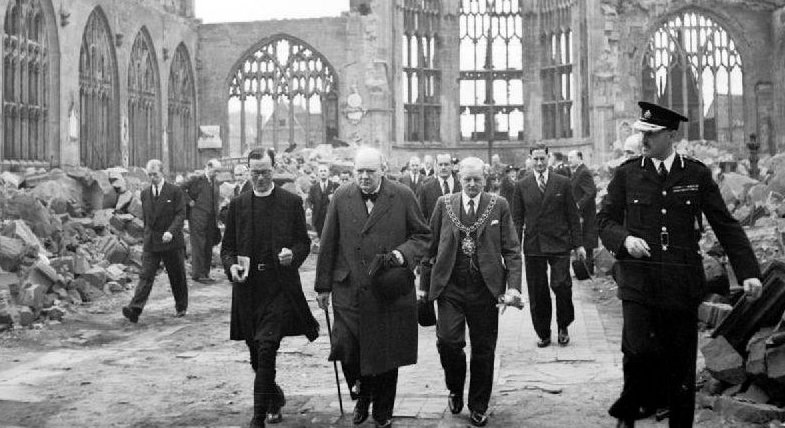
What Winston Churchill Meant by “Christian Civilization”
Christian in a way…
Churchill often invoked the words “Christian civilization.” An earlier post of mine on Churchill and Religion was picked up (context albeit somewhat abbreviated) by Wallace Henley. In “The Global Tsunami on ‘Good'” Mr. Henley wrote:
I am not arguing for a Christian theocracy, but for adherence to the basic doctrines of life, love and care described in Scripture. Winston Churchill argued that the great goal of the Second World War was the survival of what he called repeatedly “Christian civilization.” Richard Langworth, a Churchill scholar, says that by “Christian civilization” Churchill thought that Christianity’s “principles applied broadly to all of mankind regardless of religion.” Just as, to Churchill, the word “man” meant humankind, his allusions to Christianity embodied principles he considered universal.
Optimistic agnostic
This is fine as far as it goes, but it leaves out some of the essence. Churchill was, I wrote, an “optimistic agnostic.” Without being on conversational terms with the Almighty, he was quite willing to invoke the Deity when appropriate. As he wrote in his autobiography, My Early Life, “I did not hesitate to ask for special protection.” Andrew Roberts, author of the best single-volume Churchill biography, put this very neatly:
One of the primary duties of the Providential Being in whom Churchill did believe, but to whom he paid little overt obeisance, seems to have been to watch over the physical safety of Winston Leonard Spencer Churchill. Few people in history could have brushed against the cloak of the Angel of Death as often as Churchill, yet he survived until his 91st year.
“Black velvet”
Churchill wasn’t sure about what existed after death. He once referred to it as “endless sleep…black velvet.” Yet at another time he predicted that he would get to heaven and spend his first million years in heaven painting. Thus, he explained, would
“get to the bottom of the subject.”
He often quoted the King James Bible (more than any other book). He was impressed both by its beautiful words and its ethics—which he applied universally. You can be a Sikh, a Hindu, whatever, and still accept Churchill’s precepts of Christian civilization.
Churchill did not take the Bible literally, seeing no need. He said that if its message “cheers your heart and fortifies your soul…what need is there to ask whether the imagery of the ancients is exactly, scientifically feasible?”
What Churchill meant
It would be well to reprint here exactly what I wrote in that earlier post:
When Churchill referred to Christian civilization (a phrase I have actually seen edited out of certain modern renditions) he did not mean to exclude Jews or Buddhists or Muslims. He meant those words in a much broader sense. Just as, to Churchill, the word “man” meant humanity, his allusions to Christianity embodied principles he considered universal. He meant the Ten Commandments (a “judgmental” set of moral imperatives now expunged from certain public places). He meant the Sermon on the Mount and the Golden Rule. He meant charity, forgiveness, courage.
It is important to understand this. Churchill’s words taken literally can be interpreted to mean he was a Christian evangelist. Not so. Nor did he mean to exclude other religions from the Commonwealth of Man. Quite the contrary. Churchill’s quarrel was with tyranny.







One thought on “What Winston Churchill Meant by “Christian Civilization””
Can you address Churchill’s magnanimous spirit next to your “optimistic agnostic” observation?
Seems to this reader that magnanimity is an active exercise, not an antiseptic observation encompassing all humanity.
Churchill was a man of action. Face to face. Belly to belly. No wasted kinetic exercises here.
Not a Christian “in a way.” A Christian HIS way!
–
Forgiveness is Christian, magnanimity is Churchillian. There’s a shade of difference, though I take your point. RML
Comments are closed.